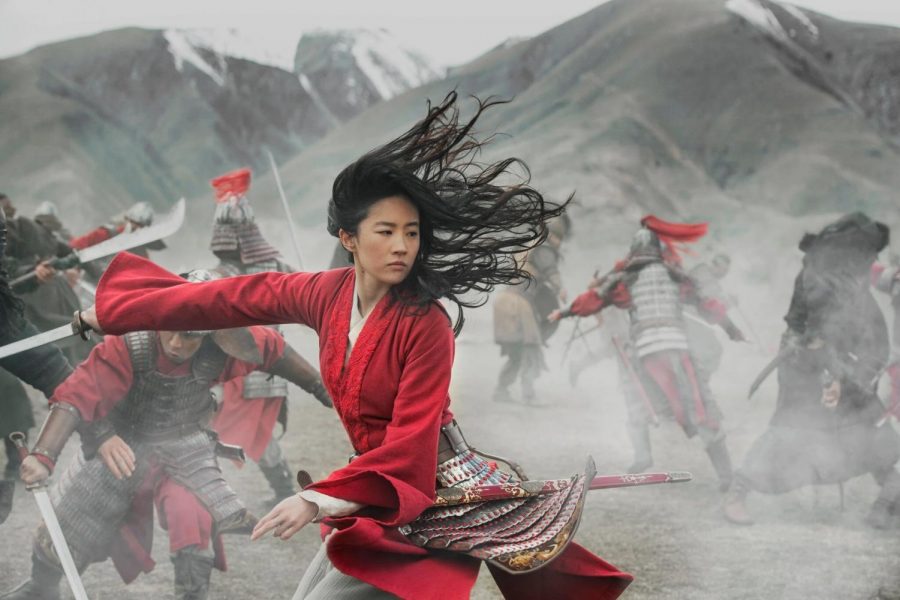New and not so improved
Live-action remake of “Mulan” is technically impressive but lacks passion and heart
★★★☆☆
Despite the changes Disney’s live-action “Mulan” employed to separate itself from the original 1998 film— no singing, no sidekick Chinese dragon Mushu and the removal of Mulan’s love interest, army captain Li Shang— the latest “Mulan” film is more dry and predictable than any Disney remake to date.
Disney’s latest “Mulan” sets off just like the original film: When one man from every Chinese household is conscripted into a national draft, a young woman named Mulan (Liu Yifei) disguises herself as a man to fight in place of her crippled veteran father (Tzi Ma). That basic plotpoint is about where the similarities between the original film and the new one end.
Now, this is not to say that adapting and modernizing elements of the original film is always bad. In some cases, the new “Mulan” does well in making improvements: For one, the elimination of Mulan’s sidekick Mushu may have come as a disappointment for American viewers, but for Chinese viewers who saw Mushu as a trivialization of their culture, the talking dragon was rightfully given the boot.
Additionally, in terms of cinematography and set design, director Niki Caro hardly disappoints (but how could she, with a production budget of $200 million?). Still, the one area “Mulan” lacks desperately in, the area that matters most for a movie skipping its theater release, is heart. Disney’s latest “Mulan” turns a story of an ordinary, nonconforming young woman eager to find her place in the world into a story of a superhuman soldier dedicated solely to bringing honor to her country.
This downgrade can primarily be attributed to Mulan’s “chi,” which the film defines as an innate warrior force that equips someone with extraordinary balance and strength. Chi is celebrated in men, as it makes them fierce warriors, but in women, who are expected to bring honor to their families through marriage, chi is meant to be kept hidden. The latter is the case for Mulan.
The result of this change is Mulan knowing the ins and outs of battle and one-on-one combat before even leaving for training. Gone is the Mulan in “I’ll Make a Man Out of You,” who is the worst soldier in her garrison, but later becomes one of the best through endless hours of training and dedication. In the latest Mulan film, she is already the best soldier there—her chi is off the charts, apparently.
In place of Mulan’s character arc in which an ordinary village girl defies everyone’s expectations of her and carves a new role for herself outside of the feminine role assigned to her, Caro’s Mulan is a cookie-cutter heroine who uses her natural fighting skills to bring honor to her family, honor to her emperor and honor to China.
Although the film does well in one respect by following the original Chinese legend “Ballad of Mulan” more closely than the original, more Westernized film did, it misses opportunities for greatness at every turn. Lacking heart, comedic relief and Mulan’s character arc of self discovery and nonconformity, the latest “Mulan” film drowns in the shadow of its predecessor.
“Mulan” is a beautiful film in every technical way, and deserves some credit for straying so far from the original film in ways that live-actions “Aladdin” and “Beauty and the Beast” did not. The disappointing part here is that in practice, so many of these changes were spoons wielded by Disney to scoop out, bit by bit, the most striking parts of Mulan’s story until it turned hollow.




